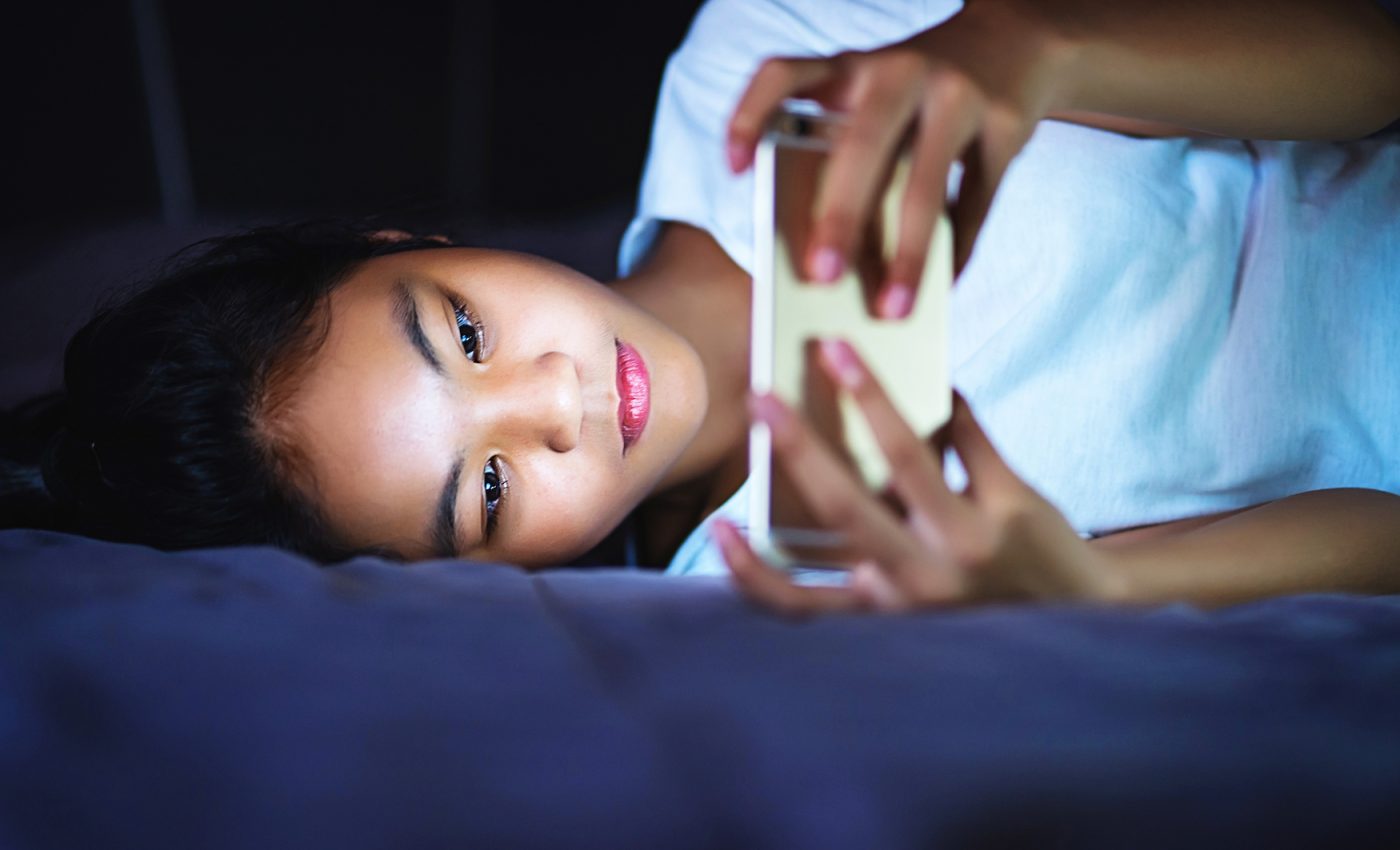
Limiting screen time can quickly reverse sleep problems in teens
Excessive blue light exposure at bedtime negatively affects sleep quality, mood, and concentration among adolescents. A new study has revealed that these problems can be reversed after just one week of limiting screen use in the evening.
A growing collection of research has found that the blue light emitted from smartphones and tablets can interfere with the body’s internal clock and the production of the sleep hormone melatonin. As a result, the length and quality of sleep is disrupted.
Sleep deprivation not only causes short-term symptoms such as fatigue and lack of concentration, but also increases the risk of serious long-term health issues including heart disease, diabetes, and obesity.
Researchers from the Netherlands Institute of Neuroscience, the Amsterdam UMC, and the Dutch National Institute for Public Health and the Environment teamed up to investigate the effects of blue light exposure on adolescents.
The study showed that teenagers who logged more than four hours of screen time per day fell asleep an average of 30 minutes later compared to those who logged less than one hour per day of screen time. More screen time also coincided with an increase in symptoms of sleep deprivation.
The team conducted a random trial to evaluate how blue light blocking glasses and the elimination of evening screen time may influence the sleep pattern of 25 frequent users. After just one week, both the glasses and the restricted screen time resulted in earlier sleep onset by 20 minutes and a reduction in reported symptoms of sleep deprivation.
“Adolescents increasingly spend more time on devices with screens and sleep complaints are frequent in this age group,” said study co-author Dr. Dirk Jan Stenvers. “Here we show very simply that these sleep complaints can be easily reversed by minimising evening screen use or exposure to blue light. Based on our data, it is likely that adolescent sleep complaints and delayed sleep onset are at least partly mediated by blue light from screens.”
The researchers now plan to explore how long the effects of reduced screen time may last, and whether the same effects can be found in adults.
“Sleep disturbances start with minor symptoms of tiredness and poor concentration but in the long-term we know that sleep loss is associated with increased risk of obesity, diabetes and heart disease,” said Dr. Stenvers. “If we can introduce simple measures now to tackle this issue, we can avoid greater health problems in years to come.”
The research will be presented at the European Society of Endocrinology annual meeting, ECE 2019.
—
By Chrissy Sexton, Earth.com Staff Writer












